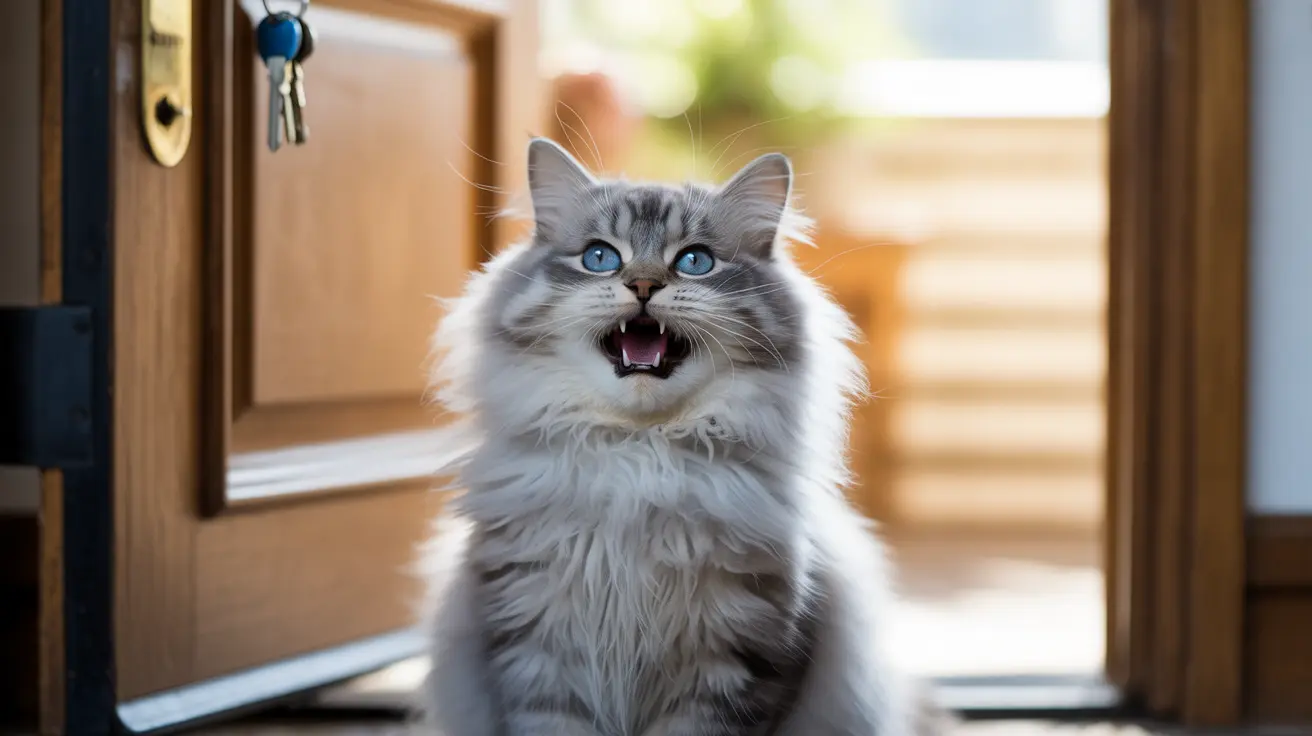Ever wondered if your cat genuinely misses you when you're away? While cats have a reputation for being independent, scientific research reveals that our feline friends form deep emotional bonds with their owners and can experience genuine feelings of longing during separation. Understanding these signs not only helps validate the special connection you share but also enables you to better support your cat during periods of absence.
In this comprehensive guide, we'll explore the telltale signs that indicate your cat misses you, backed by expert insights and behavioral studies. We'll also provide practical solutions to help your furry friend cope with separation.
Physical Signs Your Cat Misses You
Increased Vocalization
One of the most obvious signs your cat misses you is a change in their vocal patterns. Your cat may meow more frequently, especially with a distinctive tone that sounds urgent or plaintive. Some cats even develop new vocalizations specifically to express their longing.
Changes in Sleeping Patterns
When cats miss their owners, they often alter their sleeping habits. You might notice your cat sleeping more than usual or choosing to rest in places strongly associated with your scent, such as your bed or favorite chair.
Behavioral Signs of Missing You
Enthusiastic Greetings
If your cat runs to the door when you return home, displays excessive purring, or engages in intense rubbing behavior, these are clear indicators that they've missed your presence. Some cats even show their excitement through playful "zoomies" or increased physical contact.
Clingy Behavior
Cats experiencing separation anxiety may become unusually clingy when you're home. This can manifest as following you from room to room, sitting on your lap more frequently, or trying to prevent you from leaving by blocking doorways.
Physical Manifestations of Separation Anxiety
Changes in Appetite
A cat missing their owner might show noticeable changes in eating habits. Some cats may eat less when separated from their owners, while others might overeat as a coping mechanism for stress.
Grooming Changes
Watch for changes in grooming behavior. Some cats may groom excessively when missing their owners, potentially leading to bald spots or skin irritation. Conversely, others might groom less, indicating depression.
Creating a Supportive Environment
Enrichment Activities
Provide environmental enrichment to help your cat cope with your absence. This can include puzzle feeders, window perches, and interactive toys that keep them mentally and physically engaged while you're away.
Comfort Objects
Leave items with your scent, such as unwashed clothing or bedding, in your cat's favorite spots. These familiar scents can provide comfort and security during your absence.
Frequently Asked Questions
How can I tell if my cat misses me when I'm not home?
Look for changes in behavior upon your return, such as excessive vocalization, intense greeting rituals, and increased attention-seeking. You might also notice changes in their routine or living space, such as sleeping in your bed or near your belongings.
What are the common signs of separation anxiety in cats?
Common signs include excessive meowing, destructive behavior, inappropriate elimination, over-grooming, changes in appetite, and clingy behavior when you're home. Some cats may also show signs of depression or lethargy.
Why does my cat meow or act clingy when I'm about to leave the house?
Cats are intelligent and can recognize patterns associated with your departure. This behavior indicates they've learned to anticipate separation and are expressing anxiety or attempting to prevent you from leaving.
How can I help my cat cope with being alone during my absence?
Provide environmental enrichment, maintain consistent routines, leave comfort objects with your scent, and consider getting a pet camera or arranging for pet sitter visits. Some cats may benefit from having a feline companion.
Can changes in my cat's behavior mean they are stressed from missing me?
Yes, behavioral changes often indicate stress from separation. Watch for changes in eating, sleeping, grooming, and litter box habits. If these changes persist, consult with your veterinarian to rule out medical issues and discuss management strategies.
Conclusion
While cats may seem independent, they form meaningful bonds with their owners and can experience genuine feelings of longing during separation. By recognizing the signs that your cat misses you and implementing appropriate support strategies, you can help your feline friend better cope with periods of absence while strengthening your bond.






